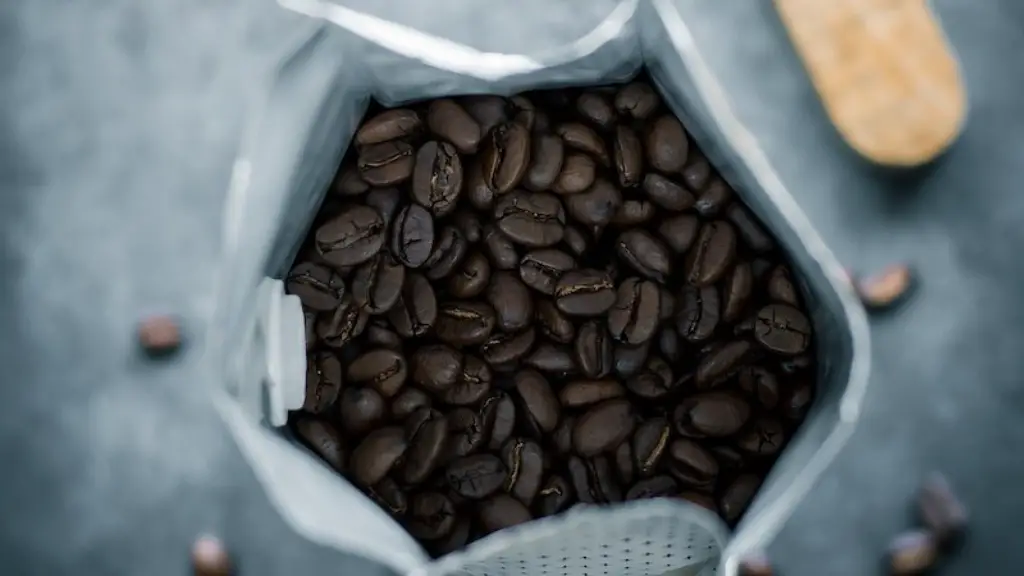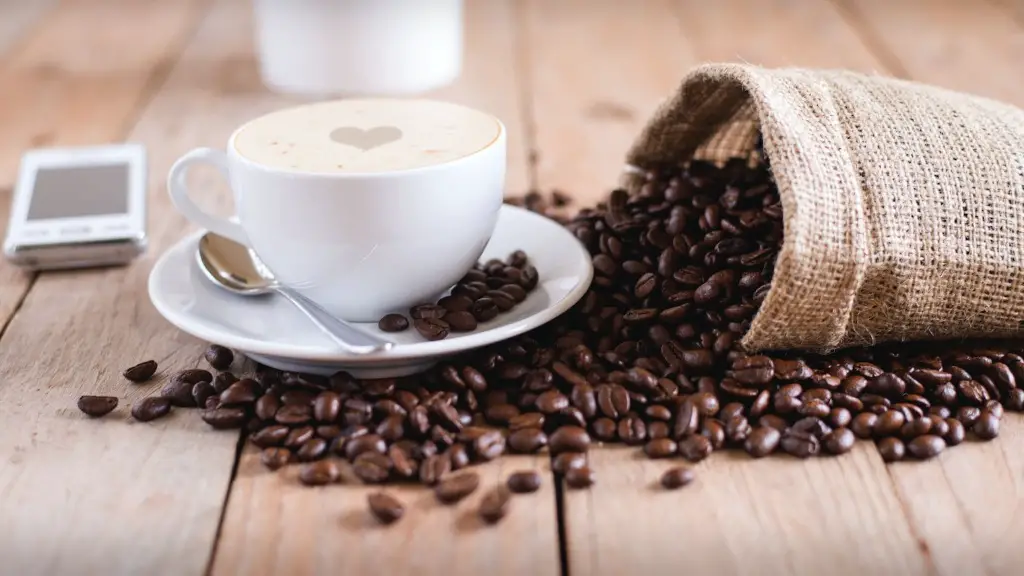We often hear conflicting advice about coffee in general, and drinking coffee after a meal in particular. Some people swear by coffee after a meal as an aid to digestion, while others insist that it’s bad for your health. So what’s the truth?
Background
Coffee is a commonly consumed beverage that has both positive and negative effects. It contains several beneficial compounds including caffeine, antioxidants, vitamins, and minerals. Caffeine has been shown to increase alertness, improve focus, and provide a mood boost. Coffee also has potential health benefits, including a reduced risk of cancer and heart disease. However, it can cause nervousness, restlessness, irritability, and digestive problems.
Digestive Benefits
Some experts argue that coffee can act as an aid to digestion, helping to break down the proteins and fats in a meal. Studies have shown that coffee can increase the production of gastric acid, which can help your body to digest food more easily. In addition, coffee contains compounds that slow down the absorption of sugars and starches, which may reduce the risk of metabolic disorders such as diabetes.
Negative Effects
However, while some experts argue that coffee can be beneficial after a meal, others point out the potential negative effects. Caffeine can stimulate acid production in the stomach, which can cause acid reflux, heartburn, and indigestion. It may also interfere with the absorption of vitamins and minerals such as iron, calcium, and magnesium.
Individual Variations
The effects of coffee after a meal can also vary from person to person. Factors such as age, gender, and lifestyle can all influence how your body reacts to coffee. If you’re sensitive to coffee’s effects, you may want to avoid drinking it after a meal.
Conclusions
Overall, it’s clear that the effects of coffee after a meal depend on the individual. If you are healthy and don’t have any digestive problems, moderate consumption of coffee may be beneficial for digestion. However, if you’re sensitive to the effects of coffee, you may want to avoid it after meals to minimize negative side effects.
Alternatives to Coffee after Meals
If you’re looking for a way to aid digestion without the potentially negative effects of coffee, you may want to try some alternatives.
Herbal Tea
Herbal teas can be an excellent alternative to coffee after a meal. They contain a variety of compounds that aid digestion, including ginger, peppermint, and chamomile. Herbal teas can also help to reduce stomach bloating, gas, and nausea. In addition, they are generally caffeine-free, so you can enjoy them without the side effects of coffee.
Fruit
Fruit is another excellent option for aiding digestion. Fruits such as apples, pears, and oranges are high in fiber, which helps to regulate digestion and reduce the risk of heartburn. They also contain antioxidants and other beneficial compounds, which can help to reduce inflammation and promote healthy digestion.
Yogurt
Eating yogurt after a meal can also be beneficial for digestion. It contains probiotic bacteria, which can help to maintain a healthy balance of good bacteria in the gut. Probiotics can also reduce the risk of bloating and gas, which is often a sign of poor digestion.
Warm Water
Finally, drinking a glass of warm water after a meal can help to stimulate digestion. Warm water helps to improve the flow of bile, which can break down fats and other components of a meal. In addition, drinking water can help to clear out toxins and promote healthy digestion.
How Much Coffee After a Meal?
It’s important to consider your individual reaction to coffee when deciding how much to drink after a meal. Generally, it’s best to enjoy a cup or two of coffee after a meal, especially if it helps to aid digestion. However, if you find that you’re sensitive to caffeine, it may be best to limit your intake or choose non-caffeinated alternatives.
Timing
It’s also important to think about the timing of your coffee. If you’re looking for a digestion aid, it’s best to drink a cup or two of coffee about 20-30 minutes after a meal. This will give your body time to digest the food before the caffeine takes effect.
Amount
When it comes to the amount of coffee to drink, moderation is key. Adults should limit caffeine intake to up to 400 milligrams per day, which is equivalent to 4 cups of coffee. If you find that coffee is irritating your stomach, it may be best to limit your intake even further.
What to Avoid When Drinking Coffee After a Meal
When drinking coffee after a meal, there are a few things you should avoid.
Sugary Drinks
One of the most important things to avoid is sugary drinks. Most coffee drinks are high in sugar, which can cause a spike in blood sugar levels after a meal. This can interfere with digestive processes and increase the risk of developing metabolic disorders such as diabetes.
Cream and Milk
Adding cream or milk to your coffee can also interfere with the digestion process. Dairy products are high in saturated fat, which takes the body longer to process. In addition, dairy products can upset the digestive system and cause bloating, gas, and indigestion.
Decaffeinated Varieties
Decaffeinated coffee is also best avoided after a meal. While it’s true that decaf coffee doesn’t contain any caffeine, it still contains compounds that can interfere with digestion. These compounds are similar to the ones found in caffeine, so it’s best to avoid decaf coffee after a meal.
The Bottom Line
Overall, there are both positive and negative effects to drinking coffee after a meal. For those who are healthy and don’t have any digestive problems, moderate consumption of coffee may be beneficial for digestion. However, if you’re sensitive to the effects of caffeine, it may be best to avoid it after meals to minimize negative side effects. It’s also important to consider the other ingredients in your coffee, such as cream and dairy, which can interfere with digestion. If you’re looking for a way to aid digestion without the potentially negative effects of coffee, there are several alternatives, such as herbal tea, fruit, yogurt, and warm water.
Precautions
When it comes to drinking coffee after a meal, it’s important to be aware of the potential drawbacks. While moderate consumption can be beneficial for digestion, too much can lead to negative effects such as heartburn, acid reflux, and indigestion. It’s also important to be aware of other ingredients in your coffee, such as cream and dairy, which can interfere with digestion.
Other Considerations
In addition to drinking coffee after a meal, there are other ways to improve your digestion. Eating smaller meals and avoiding trigger foods, such as spicy and fatty foods, can be beneficial for digestion. Exercise can also help to reduce digestive problems and improve overall health. Taking probiotics may also be beneficial, as they can help to maintain a healthy balance of good bacteria in the gut.
Conclusion
Whether or not to drink coffee after a meal is an individual decision. While it can be beneficial for digestion if consumed in moderation, it’s important to be aware of the potential negative effects. There are also several alternatives, such as herbal tea, fruit, yogurt, and warm water, which can help to improve digestion without the potentially negative effects of coffee.


